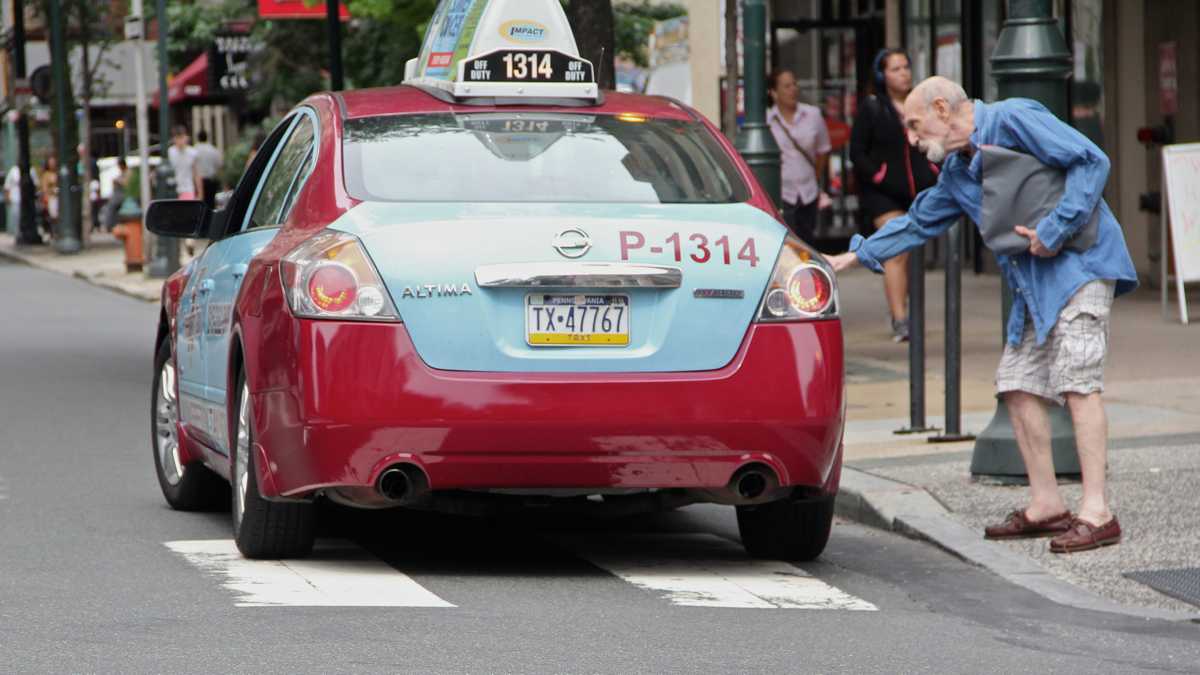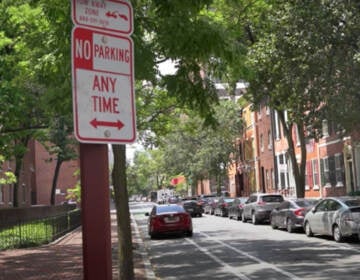Taxicabs’ lawsuit against PPA survives legal challenge, seeks $558 million in damages

A lawsuit by more than 130 medallion taxicab companies against the Philadelphia Parking Authority (PPA) alleging a violation of the companies’ constitutional rights survived a preliminary motion to dismiss on Monday. Federal district court Judge Michael Baylson ruled that the case might proceed to trial. The case seeks $558 million in collective damages based on the devaluation of taxi medallions since transportation network companies (TNCs) like Uber and Lyft began operating illegally.
The taxi companies allege that the PPA discriminated against them by failing to enforce taxi laws against Uber and Lyft when they operated illegally in Philadelphia. Harrisburg legalized TNCs in October 2016, just a few weeks after the lawsuit was first filed. But TNCs operated for many months prior to that illegally. The PPA said as much, but the taxi plaintiffs allege the agency turned a blind eye towards enforcement, thereby treating TNCs more favorably than the heavily regulated taxis. The PPA has said that they tried to uphold taxi laws against TNCs but were stymied by limited resources and Uber’s legally dubious efforts to elude enforcement.
Surviving a motion to dismiss says little about the lawsuit’s chances in court. In deciding whether to grant the motion, a judge asks whether the plaintiffs have made a legally-viable argument, assuming all the facts alleged are true. The PPA’s defense rests largely on a factual matter — whether they tried to enforce the laws against the TNCs or not.
In a statement, PPA General Counsel Dennis Weldon, Jr., highlighted the preliminary nature of Baylson’s ruling: “The court noted that ‘[t]he parties should not interpret this finding as any conclusion on the merits.’”
The taxis claim that the PPA violated their constitutional rights to equal protection and due process under the law. The taxi companies argue that TNCs fit the statutory definition of taxicabs, but were treated differently than taxis. Under the equal protection clause of the 14th Amendment, governments can only treat similarly situated individuals (including companies) differently if it rationally advances a legitimate government purpose. The taxis argue that the PPA’s allegedly arbitrary decision to not enforce the law has cut their revenues in half.
The cab companies also allege that the PPA’s actions constituted a regulatory taking of the value of their taxi medallions. The 5th Amendment requires due process of the law when the government takes private property, including incidental takings that happen through government regulatory actions. The court held that taxis have enough of a property right in their taxi medallions to make a regulatory takings claim. Taxi medallion values have dropped from around $500,000 to less than $50,000 since the TNCs began operating in Philadelphia. The 130 companies involved in the lawsuit represent around 1,200 of the 1,600 taxi medallions issued by the PPA.
Brett Berman, an attorney representing the taxis, said the PPA simply failed to do its job for no discernable excuse. “We’re in a position here in Philadelphia where these regulators could have acted and for whatever reason chose not to, turning a blind eye to those people who invested their life savings in this industry — and their sweat and blood and tears — and now they’re left holding the bag because of that inaction.” said Berman. “We’re thankful for Judge Baylson to recognize clear constitutional violations under the 5th and 14th Amendments.”
While Harrisburg eventually passed a law legalizing TNCs, that law did not settle the question of whether the PPA violated the medallion owners’ rights earlier. But, even if the taxis ultimately win at court, the subsequent legalization would likely reduce the size of potential damages awarded, given that medallion prices arguably would have plummeted regardless of the PPA’s actions prior to the law’s passage. Still, Berman said, even if Act 164’s passage creates a hard cap on damages, the PPA should remain liable for financial harms incurred during the two years prior when Uber and Lyft operated without statutory authority.
The court also refused former PPA Executive Director Vince Fenerty’s motion to dismiss. Usually, government officials are insulated from lawsuits related to their public actions by the concept of “qualified immunity”. There’s an exception, however, when those public officials “violate clearly established statutory or constitutional rights.” Here, the court said there was enough of a question of whether Fenerty did so to survive the motion to dismiss.
The PPA and Fenerty are both being represented by the law firm Archer & Grenier. Fenerty resigned in disgrace last September after sexual harassment allegations against him were made public. Since then, Fenerty filed for over $200,000 for unused vacation, sick day and comp time. Fenerty also collects an annual pension of $158,628.
WHYY is your source for fact-based, in-depth journalism and information. As a nonprofit organization, we rely on financial support from readers like you. Please give today.





